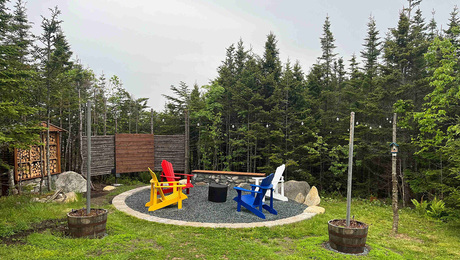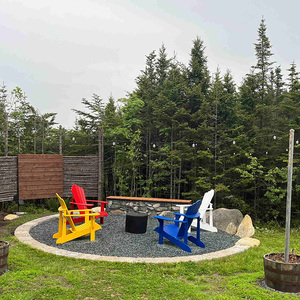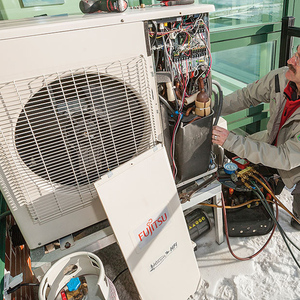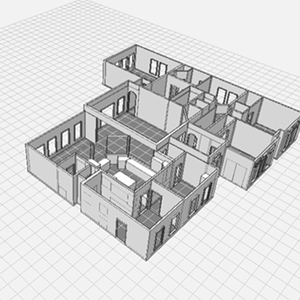Electric Boiler Recommendations
I am asking for a referral to a high quality/high efficiency ELECTRIC boiler. The boiler will provide supplemental heating to an indirect system which supplies DHW and in-floor radiant.
Even though the electric boiler is my direct question, I would also like to give a bit of background over an issue that I have struggled with for over a year now.
The house is new construction in central California. It is country property where I only have electricity and solar and propane and (probably) oil available to power my boiler. The struggle I had was basically regarding the relative INefficiency of electricity as a heating fuel. Many conversations I had with ‘engineering types’ went back and forth among the various fuels.
My plan is to provide on-grid photovoltaics for 100% offset of electricity use. I also plan to use solar collection for hot water, with oversized storage tanks. The house itself is straw bale, so it will have a small heat load to begin with. And will make use of as many passive measures as possible (which is quite a bit – it is exactly south-facing).
I am feeling that petroleum-based fuel sources are turning into a worse and worse prospect. As lack of renewability becomes more evident, the ‘smartness’ and cost effectiveness of solar solutions is becomming more compelling. I feel that will continue into the future. Indefinitely.
Another reason why I would like to step away from propane gas, is that it adds another type of fuel system onto the property. It’s typically smarter to reduce complexity in design.
One engineer finally told me that I should go ahead with the electric boiler if I really felt inclined to do so. He said that my requirements are so minimal for auxiliary hot water supply, that the boiler may actually be used on very rare occasions. The electrical load will also be low plus it will be offset by photovoltaics.
So anyway. My question is still about the elecric boiler: have you seen or used or installed one that you particularly like? And on the other hand, if you think I should walk away from the electric boiler, let me know that too.
Thanks, Martin Petersen



















Replies
Don't know enough about the house heat + domestic hot water requirements in the coolest weather but it may be worthwhile to look into a 50 or 80 gallon domestic hot water tank(or maybe larger) or a combination thereof. If the btu/hr heat loss is only 15-18,000 then a tank system may be the cheaper solution. A full electric boiler may require an electrical service upgrade that may be unnecessary.
So did you end up going with the electric boiler or were you talked out of it. I too am building a new house and am pretty seriously considering putting in an electric boiler for my radiant floor and domestic water. The one that came most highly reccomended to me was by Monitron. Any advice from your experience would be appreciated.
Well ... the jury's still out. Our architect has sent plans out to get estimates for a number of configurations. As soon as that comes in I will share results.Here is a crosspost in another forum that I frequently visit. Results there are equally interesting.http://www.countrybynet.com/forums/showflat.php/Cat/0/Board/homebuild/Number/32664/page/0/view/collapsed/sb/5/o/all/fpart/1It's fascinating to visit sites that unequivocally proclaim 3-5 year paybacks on photovoltaics. Then look at postings on these forums which essentially say that you will NEVER get payback on the upcharge. Ever.I'm going to run the numbers myself once that I get estimates back.Martin
I'm quite interested in hearing more when you do. It sounds like my situation is a little different, I'm in the northwest, I'm on a shady lot and am not considering any photovoltaics. I am however still interested in the potential of an electric boiler.
All discussions of the ultimate efficiency of monolithic coal fired electric generation aside, I've found that with a dual fuel peak demand system offered by my utility ($0.04/KWhr) and a low cost but durable and efficent (so far) Seisco space heating boiler http://www.seisco.com , I'm able to nicely heat 1600 sq ft of well insulated and sealed space in a 7k HDD climate. Propane WH back-up for peak demand shut-down.
DIY radiant floor sandwich, passive solar, EPA woodstove.
Run the numbers for your heat loss, HDDs, electric cost versus other. Electric boilers can work well, the lower your heat loss the better.
I was unaware of this brand, thanks for the info. I will check them out.
Well, quite a bit has gone on here since my last visit ... on the post AND on our energy strategy.We finally have enough data to analyze with a degree of accuracy. The base heat loading of the new house is established, and we have mechanicals understood enough so that we can estimate use of an all-electric solution vs. a propane gas solution.California still has incentives here and there which help with the financials. In our case an all-electric house, with sufficient solar photovoltaics to 100% cover our electric utilization, pays for the entire system within 7-10 years. Afterwards there is an additional 10-15 years of service life for the equipment when it starts all over again.So we basically have to decide whether we are planning to live in the house for 10 years. Of course there are other things we think about such as the 'goodness' of doing this (in our opinions, at least). And the going-in cost is dramatically more which is also a consideration.The inflation rate of energy costs is an unknown. But we are willing to bet that the RATE will increase. Possibly the incentives will increase as well.The cheapest way to reduce energy costs in a new house is through BUILDING a good house (eg insulation, etc), and conservation. We have gone as far as we can with those items.Within a couple of weeks I will have soft copies of our analysis. Send me pm at mjp /at/ slobuds /dot/ com if you would like to get a copy.The cooling topics above don't apply to us. Our base performance on the new house will yield interior temperatures of high-70s, on exterior temperatures of 115-120 degrees. We can only achieve that because of insulation (straw bale), high-quality windows, south-facing orientation, overhangs, and most importantly a COOL night every night which is always low-60s regardless of the daytime temperatures. Whole house fans will be used to expel hot air each night.We are happy with the way the house has turned out from an engineering perspective. We wanted to try to achieve zero ducting and it has worked out that way exactly. But only because of our kindly Mother Nature for the most part.Best,
Martin Petersen
Nice Job Martin! Please send me a copy of your analysis when you can, it sounds interesting and you've really been working hard on this one, I'd love to look at what you've done. Best of luck too!-------------------------------------
-=Northeast Radiant Technology=-
Radiant Design, Consultation, Parts Supply
http://www.NRTradiant.com
Martin,
"high-efficiency" and "electric" are redundant. 99% of the energy goes into your house whether you spend $109 on an electric HWH or tens times as much for some purpose-built speciality heater.
And it's not a "boiler", no steam is created. It is a water heater.
If you truly have a very low heating load, maybe electric makes sense. But note that for all you prognosticate about the future of fossil fuels, some electricity is generated from oil, natural gas, and a lot from coal. So if fossil fuels cost more, electricity does too after the new rate tariffs shake out. If you burn fossil fuels at home you get to keep 80-85% of the BTUs. If ConEd burns them and sends you the electrons, the efficiency is 40% at most. But you pay for all the fuel they burned. Nothing is going to change the thermodynamics of a heat engine. And the utilities won't be on fuel cells in a big way for decades after you're driving one around in a Honda Civic.
When your batteries are dead, they're dead. You'll need a day or two of sunshine to recharge them (or a generator rattling away 24/7). Whereas if a propane or oil tank starts to get low, you just call your supplier and it is topped off the next day.
Look, I'm as liberal, creative, energy-conserving as anyone. I've got the tightest house in town by a factor of 4. My wife drives a Prius and I'm building a vehicle to get 50% better mileage than the Prius. I wouldn't fault you for spending money to take a stand or prove a point.
But I'm also a registered civil engineer, studied chemical engineering and am a pretty good plumber. Some things, like heating with fossil fuel (or wood) are just really tough to beat. Very low capital cost, low installation cost, known technology, lasts a long time, lots of people can service it.
Solar hot-water heating can make a lot of economic sense. Especially when integrated into the house layout so that it has good orientation and adequate storage.
I can appreciate your perspective, I too believe it is wise to be incredibly energy conscious while simultaneously attempting to keep things in check by acknowledging the bigger picture. I am utilizing what I believe to be a super efficient yet still practical insulation system and would like to approach my heating system similarly. We will have a 1550sf home with +/- 1300 sf slab on grade, through which I will be running hydronics. We will also have a wood stove. My current debate is the boiler type for the radiant system. I have been considering a very high efficiency propane boiler but most recently have begun pondering electric 'boilers' like the ones by Monitron. I can't really prognosticate about the future of fossil fuels vs. electric, other than to acknowledge that fossil fuels will diminish and alternate sources of electricity will be developed; particulary in the Northwest, where I am, there is a trend towards available green power. Given the inherent efficiency of an electric heat source, as it applies to energy consumption of the unit, not the developement of that power, and given that the current cost of propane is more than that of comparable electricity, does it make sense to consider one of these electric 'boilers'. Honestly, I don't know much about them other than that they're out their and previously were not the best option because propane was cheaper. It's posible that the cost of propane will considerably drop and make this a moot point, but currently its seems pretty questionable. What do you think?
eric